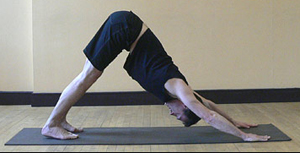 New York is hosting the National Yoga Asana Championships sponsored by USA Yoga, an organization that wants to see yoga become an Olympic Sport. Rajashree Choudhury, cousin of the creator of Bikram Yoga and founder of the yoga pose competition, said the poses to be judged show “how someone can have perfect strength, balance, flexibility in the body.”
New York is hosting the National Yoga Asana Championships sponsored by USA Yoga, an organization that wants to see yoga become an Olympic Sport. Rajashree Choudhury, cousin of the creator of Bikram Yoga and founder of the yoga pose competition, said the poses to be judged show “how someone can have perfect strength, balance, flexibility in the body.”
Aside from raising eyebrows as another unconventional “sport” pursuing induction into the Olympic games, the thought of performing yoga poses for competitive reasons is creating quite a stir among spiritual purists. Many believe the roots of yoga steer clear of the need to judge and the purpose of practicing is about acceptance, inclusion and non-dualism.
USA Yoga believes that an increased awareness of the sport on an Olympic level will encourage more people to want to practice yoga, and enable a larger population of people to be happier and healthier as a result. Not everyone agrees with this concept, however. Roseanne Harvey, a blog writer and avid yoga practitioner from Canada says that in most yoga classes, “what we’re trying to do is encourage students not to compete.”
According to USA Yoga, yoga competitions originated in India over a hundred years ago and they are still being demonstrated there today. It is said that Ashtanga Yoga founder Pattabhi Jois created some of the classic Ashtanga Yoga asanas from watching Indian wrestlers and British gymnasts practice their sport and floor exercises.
Yoga asanas have been teased out of the spiritual context not only in their creation and development, but also in the way many of us practice today. Isolating the asanas in the spotlight of an internationally applauded sporting event could push yoga into a category not yet comprehended. The controversy surrounding this potential consequence is thought provoking.
Separating out yoga asanas for the purpose of refining alignment, developing flexibility, and increasing strength, happens all of the time and does not necessarily cancel out the spiritual components surrounding the practice as a whole. It is important, as with any physical endeavor, to look at all of the parts that make up the whole, both individually and as part of the bigger picture. But because all eyes will be on just one aspect of yoga, the yoga asana, the bigger picture may face the danger of extinction.
Media, television, social networking and the momentum of popular thought can change things in an instant. What was once only practiced in seclusion by a chosen and enlightened few could now become viewed as a world famous Olympic sport. In the event this becomes the reality, how do you think the face of yoga will change?
Also Read:
